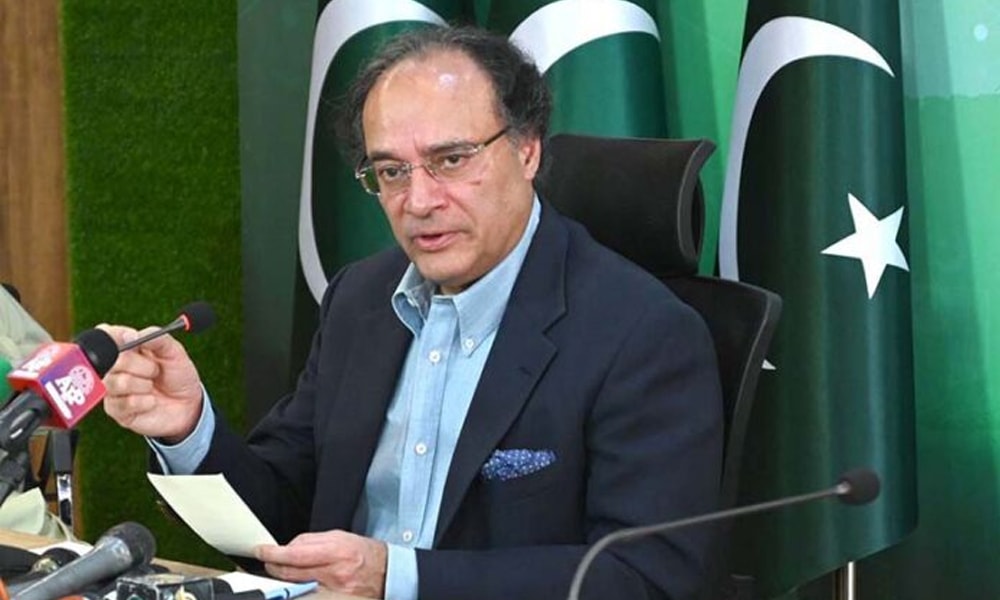Finance Minister Mohammad Aurangzeb: We Will Ensure That the Current IMF Program Is the Last One
Meeting of the National Assembly’s Finance Committee Held Behind Closed Doors at the Request of the Federal Finance Minister
Opposition Leader Umar Ayub Criticizes Government’s Handling of FBR Tax Shortfall and Privatization Plans
ISLAMABAD ( WEB NEWS )
The meeting of the National Assembly’s Finance Committee was held behind closed doors at the request of Federal Finance Minister Mohammad Aurangzeb. During the meeting, Finance Minister Mohammad Aurangzeb stated that the government and its allies will ensure this will be the last IMF program. He emphasized that the biggest issue for Pakistan is its population, with 40% of children under five suffering from stunting. He also highlighted that Pakistan is about to sign a Country Partnership Framework with the World Bank.
The meeting, chaired by Syed Naveed Qamar, took place at the Parliament House and was attended by the Finance Minister, Chairman FBR, and other officials. The Finance Minister requested that the briefing be held in camera. The committee chairman initially suggested that only part of the briefing be in camera, while the rest should be open to the public. Committee member Nafisa Shah remarked that the media is already aware of the IMF’s conditions, and the public should be informed of what is happening. The committee chairman decided that the briefing on how the government is implementing these conditions should be held in camera.
During his briefing, Minister Aurangzeb mentioned that he had several meetings in Washington, including with officials from the IMF and World Bank. He noted that other countries had praised Pakistan’s efforts. He further stated that if things were easy, Pakistan would not have gone through 25 IMF programs. The Prime Minister is clear that this will be the last IMF program, and the government, together with its allies, will make sure of this. He also stressed that Pakistan’s second-largest issue is climate change, and that Pakistan is set to sign the Country Partnership Framework with the World Bank.
Opposition Leader Umar Ayub Criticizes Government’s Handling of FBR Tax Shortfall and Privatization Plans
Opposition Leader Umar Ayub criticized the government’s handling of the FBR tax shortfall, stating that the government has no plan to address it. He also raised concerns about the privatization of PIA (Pakistan International Airlines) and the power sector, saying that the government is talking about privatizing the power sector but has failed to privatize PIA. He questioned how privatization of two distribution companies could be done when no investor is willing to invest.
During a media interaction after the Finance Committee meeting, Umar Ayub criticized the government’s economic policies, stating that the country’s economy and major industries are not showing growth. He also pointed out that agricultural taxes are being increased, which he believes is unrealistic. He noted that the government had successfully reduced the circular debt flow to 8 billion rupees per month, but it has now increased to 55 billion rupees. This increase in capacity charges is expected to affect the public, he said.
Ayub also raised concerns about the rapidly growing circular debt in the gas sector, especially with increased demand during the winter, which will burden consumers. He suggested that the government should publish the assets of civil servants, as well as military and judicial officers, and questioned the efficiency and expenditures of the State Infrastructure Financing Corporation (SIFC). He also mentioned the rise in petroleum smuggling, particularly in areas like Thakot and Bittagram, and claimed that 9 individuals are involved in this smuggling network.
Finally, Ayub criticized the government’s claim of increased IT exports, mentioning that internet speeds are poor and that a policeman has been assigned to check each gigabyte. He questioned the government’s plans for addressing the FBR tax shortfall, while also demanding to know where inflation had decreased, as the government claimed. He accused Prime Minister Shahbaz Sharif of being aligned with the establishment and challenged the government to disclose the number of stock market offers. Ayub concluded by stating that the energy sector is facing a crisis, and the government’s capacity payments are increasing.

